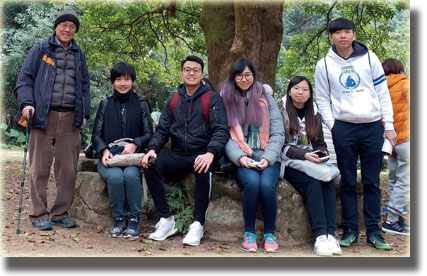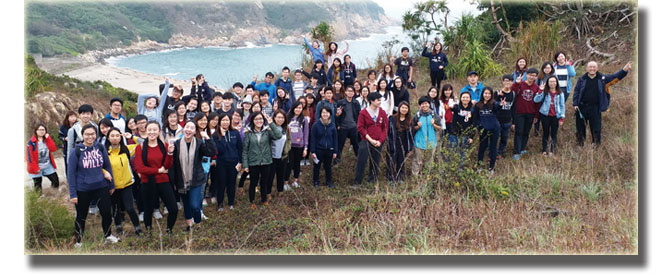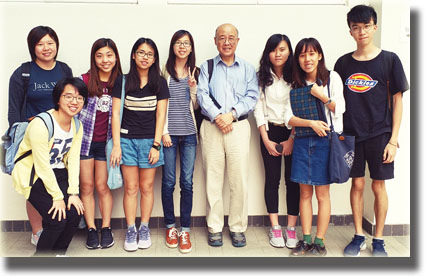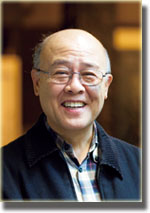Teaching Philosophy
My teaching philosophy is based on Benjamin Franklin’s saying "Tell me and I forget, teach me and I may remember, involve me and I learn."
The Chinese philosopher Xunzi ( 荀子) had said similar things in the third century BCE on the learning stages of knowing, seeing and practicing. He said,
"Knowing is better than unknown, seeing is better than knowing, learning is better than seeing and practicing is better than learning.” (Xunzi, Chapter 8: The Achievements of the Confucians)
(「不聞不若聞之,聞之不若見之;見之不若知之,知之不若行之。」《荀子.儒效》)
I bear this philosophy in mind when I was invited by Professor Chen Yongqin David of the Department of Geography and Resource Management to teach a General Education course UGEB2113 Nature Conservation in Hong Kong since 2009. I started this course on nature conservation with two intentions: one is to share my experience, knowledge and passion on nature conservation and the other is to prepare young people to take up the responsibility in conserving our nature, or at least to be a supporter of nature protection rather than becoming a destroyer of nature. I wish to equip students with basic conservation concepts, history and the global trend and to arouse their interest in and love of natural environment and finally to involve them in case studies.

After running the course for a few years, it became a double-coded course with GRMD2304. I try to integrate students of different disciplines in exploring nature conservation in Hong Kong. The teaching arrangement is as follows:
- Learning through lectures;
- Seeing through field trips; and
- Involving through group projects.
Lectures:
There are 10 lectures dividing into 3 groups.
- The first two lectures focus on concepts and principles of nature conservation together with the historical development of nature conservation in the world and in Hong Kong.
- The second group of lectures is related to specific conservation measures and human activities such as countryside recreation, marine and terrestrial conservation, geological and tree protection. These lectures provide students with factual information enabling them to think and reflect.
- The last group of lectures is related to policy and problems of conservation. These lectures are chiefly delivered by guest speakers from different sectors such as property developer, government officer, representatives from Heung Yee Kuk, green groups and research institutes etc.. The purpose of these lectures is enabling students to understand that there are different perspectives and dimensions of nature conservation.

In order to help students to remember some important concepts, this part is assessed by two quizzes.
Field Trips
Three field trips have been organized covering most of the important categories of nature conservation areas in Hong Kong such as country parks, water catchment areas, Sites of Special Scientific Interest (SSSI), special areas, marine parks, country parks enclaves, geo-parks, village area, reclamations and locations for dolphin and other species protection. Relevant experts have been invited as resource persons in these field trips.
These trips enable student to see the actual situation rather than theories in the classroom. They have to write one field trip report on any subject that impressed them most in these trips. This is a test of their power of observation, sensitivity, ability of integration and reflection, so that they would remember.
Group Projects
Students have been divided into groups of 5 to 7 in carrying out a group project on a specific conservation case in Hong Kong. These are multi-disciplinary groups so that they can share knowledge of their own discipline in conducting the group project. The group project is the important part of the course. This required student’s personal involvement in tackling one particular local environmental issue. The outcome of group projects has been extremely encouraging. Different disciplines created dynamic effects by giving contributions from different perspectives. I collected students’ group project reports of 2017 and published a book “Conservation and Development in the Eyes of University Students” (2018, Cosmos Books, Hong Kong); “大學生眼中的保育與發展”. (天地圖書, 2018). This is a memorial book for students after so much hard work. Outcomes of group projects have been shared among students; consequently all students are benefitted from others’ studies.
Feedbacks from students have been diverse. Some complained too much work. Some criticized quizzes were too difficult. Most students enjoy field trips and they start to take up the habit of hiking and some start to think seriously about their future career in nature conservation. It is my hope that this course would open a door for students seeing the magnificent wonders of nature and the need for their conservation.

|










